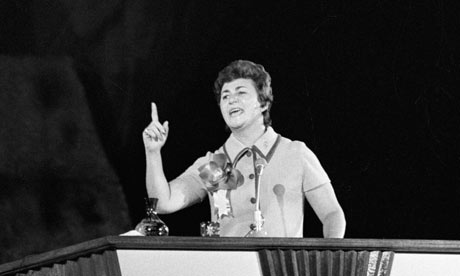
Juanita Castro, sister of Cuban leaders Fidel and Raúl Castro, co-operated with the CIA in the 1960s when the US agency was plotting to assassinate Fidel and overthrow his revolution, according to her book, published today.
Juanita, who broke with her brothers' revolution in 1964, hid government opponents in her home. She incurred the wrath of Fidel, who refused to visit her house, saying it was "surrounded by worms". Her mother also intervened with Raúl to help jailed or fugitive opponents of the Castro regime, the Miami Herald reports.
Juanita's revelation of her link with the CIA came as a short teaser at the end of an interview with the Miami television channel Univisión-Noticias 23, broadcast yesterday. "The CIA wanted to talk with me ... because they had interesting things to tell me and interesting things to ask of me," she said. "I was left half-shocked, but in any case I told them yes.''
In her book, Fidel and Raúl, My Brothers: The Secret History, Juanita admits to collaborating with the CIA both inside Cuba and after she went into exile in 1964.
Throughout the early 1960s, the CIA was involved in dozens of plots to assassinate Fidel Castro – the man himself claimed there were more than 600 – and overthrow his government.
Juanita, the fifth child of Angel Castro and Lina Cruz, has publicly and repeatedly criticised her brothers' government since she left Cuba in 1964. Calling a press conference 10 days after her defection, she explained why she could no longer stay in Cuba. "I cannot longer remain indifferent to what is happening in my country," she said. "My brothers Fidel and Raúl have made it an enormous prison surrounded by water. The people are nailed to a cross of torment imposed by international communism."
In yesterday's broadcast, Juanita, now 76, said that hers was "just one more Cuban family'' until Fidel and Raúl led the 1953 attack on the Moncada army barracks, now recognised as the beginning of the revolution.
After the dictator Fulgencio Batista was overthrown in early 1959, she worked on building health clinics and hospitals in the country, but her faith in the regime failed as the brothers started cracking down on opponents and confiscating private properties.
"I begin to lose the enthusiasm when I see so much injustice and I say, this is not possible, they are wrong. Someone here is doing things badly,'' she said on the programme.
"We tended to blame the people lower down, but the orders did not really come from the people lower down. They came from the upper levels, from Fidel, from Che, from Raúl."
Juanita added that her mother, Lina Ruz, also often helped government critics. "My mother got help from whoever could help, especially Raúl because he was always very generous with her … she appealed to Fidel in some cases," she said.
When Ruz died in August 1963, Juanita began to feel her life was in danger, she said. "When she died, I had a very delicate situation in Cuba because of my activities against the regime. Of course, with my mother, I always felt more protected ... I thought it would be harder for them to take drastic measures against me.''
Juanita last spoke to Raúl in person on 18 June 1964, the day before she left for Mexico, she told the report. Her 432-page book was co-written by Maria Antonieta Collins, a journalist who first began interviewing her for a book on her life in 1999.
Univisión-Noticias 23 negotiated the world exclusive on Juanita's tale with the publisher Santillana. She was forbidden from giving other interviews until the book was published.

